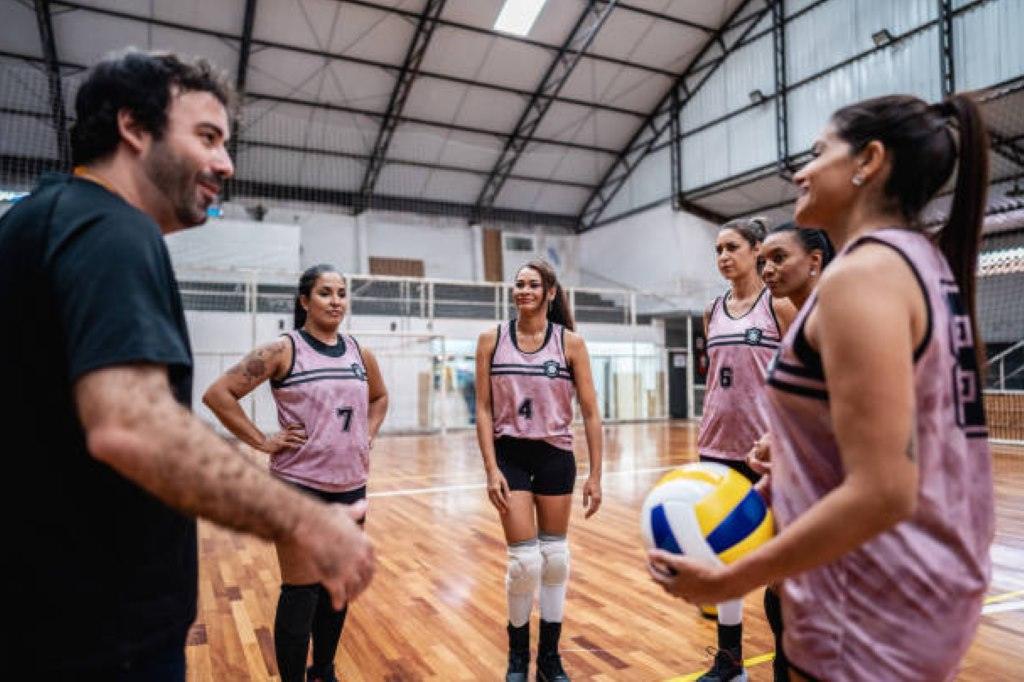Coaching in volleyball is an art that requires a customized approach to meet the unique needs of players with diverse abilities and experience. The methods used by coaches vary greatly depending on the stage of development each player is at. Whether they are beginners taking their steps on the court or seasoned athletes looking to refine their skills, coaches adapt their strategies to nurture growth and excellence. In this article we will explore how coaching approaches in volleyball cater to players across different skill levels, helping them become well rounded athletes.
Establishing a Strong Foundation for Beginners
When it comes to novice players stepping onto the volleyball court, coaches focus on building a foundation for their journey in the sport. Emphasis is placed on developing skills such as posture, ball control, basic techniques and understanding of the rules. Creating an encouraging volleyball training environment is crucial during this stage as it helps instill confidence and ignite a passion for the game. Introducing volleyball through engaging drills and games adds an element of fun while allowing beginners to grasp building blocks.
Enhancing Skills Progressively for Intermediate Players
Once players have surpassed the beginner level, coaching methods shift towards enhancing and expanding their skill sets. Intermediate players benefit from an approach that focuses on honing specific techniques related to their positions, on the court. Coaches place importance on developing, understanding, mastering play and fostering effective team dynamics.
Structured training sessions consist of drills that are specifically designed to improve accuracy, in passing, precision in setting power in hitting and defensive strategies. Additionally, developing strength and decision making skills are crucial at this stage as they prepare players for competitive gameplay.
Specialized Training for Advanced Players to Take Competitions
When it comes to players who aim to reach levels of competition, coaching takes on a more refined approach to enhance their skills. It goes beyond skill development and delves into tactical strategies, analyzing game situations and refining individual strengths. Coaches focus on techniques, exploiting opponent's weaknesses and perfecting roles within the team. Training sessions are intense, simulate real game scenarios to encourage adaptation, split second decision making abilities and performing under pressure.
Support for Elite Players
For elite level players with aspirations of competing internationally, coaching approaches become highly personalized. Coaches work closely with these athletes to create customized training regimens that cater to their abilities with the goal of improvement and innovation. Attention is given not just to skills but also mental preparedness, recovery strategies and overall athlete development. This holistic approach extends beyond the court. Includes aspects, like nutrition management, sports psychology techniques and injury prevention measures. All aimed at ensuring peak performance.
Balancing Individual and Team Goals
Finding the balance between individual player needs and the overall goals of a team is crucial for coaching at different skill levels. A skilled coach understands the importance of nurturing talents while also fostering a sense of teamwork. They recognize that personalized attention is necessary for each player. They always keep the team's objective in mind. By tailoring their coaching methods to align personal growth with team goals, they create a high performing unit.
The Findings
In the world of volleyball coaching, being adaptable is essential. Different levels of player development require coaching approaches that cater to the evolving needs of athletes. Coaches play a role in laying foundations for beginners, refining techniques for players and providing specialized support for elite athletes. Understanding these approaches and being able to adapt them is crucial for coaches to effectively guide players on their volleyball journey. Ultimately this contributes to their growth, success and passion, for the sport.


